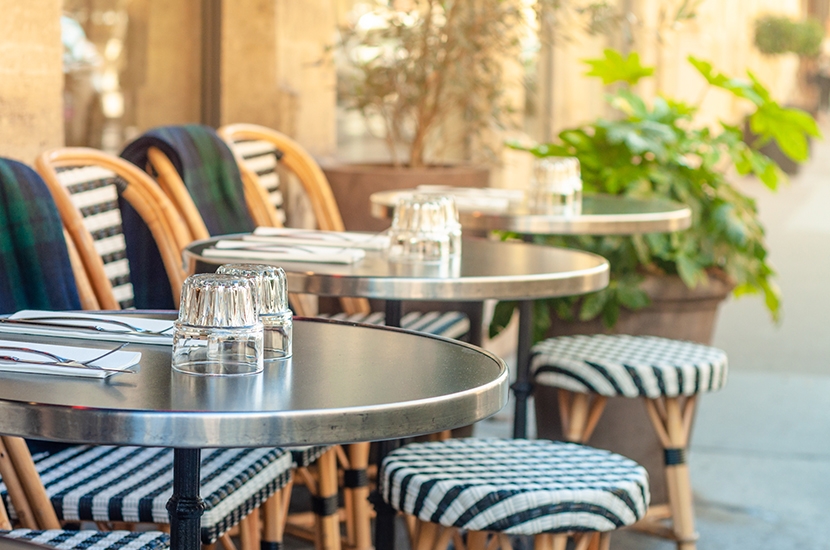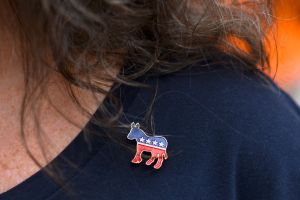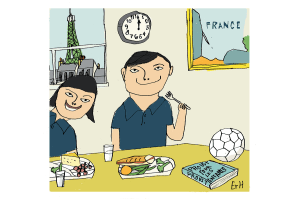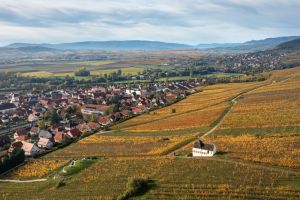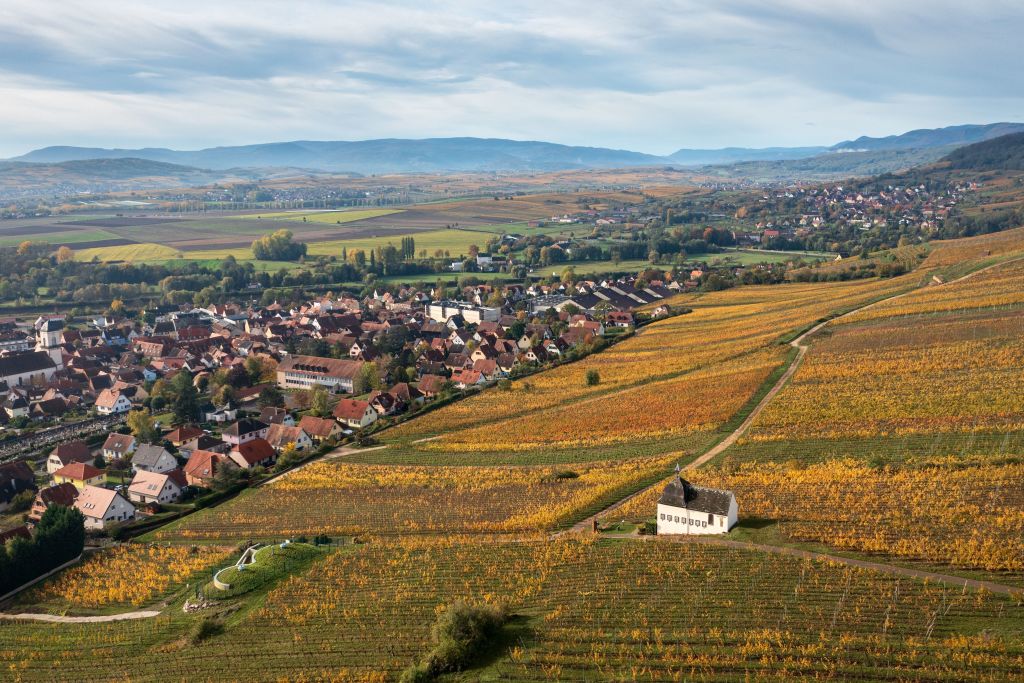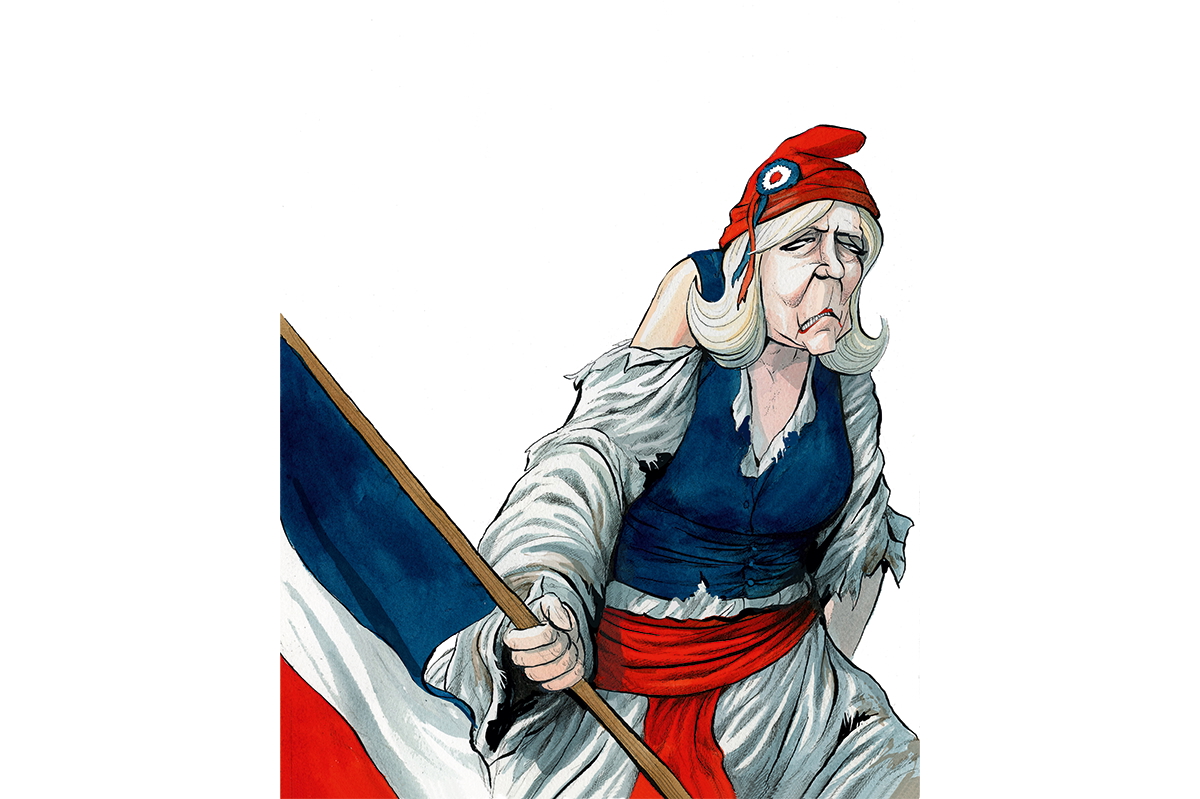France
When I first came to this village, I was told that one of the bars was a ‘communist’ bar and the other ‘fascist’. The information was appended with vague mutterings about the Nazi occupation being a live rail in the collective village memory even after 60 years and that it was probably best not to enquire too persistently or deeply into the subject.
French bars are great for getting very drunk very quickly while standing up on a tiled floor, but are not comfortable or cosy like a British pub. Therefore I haven’t yet made a habit of patronizing either of the village bars except occasionally during the busy summer holidays to meet friends who are staying in the area.
Under these circumstances, I’ve always preferred the atmosphere of the communist bar. Obviously no one political idea is better than another. But those rare few true British communists I have known as friends I have greatly admired for their childlike faith in the coming new society; for their loyalty, obedience and discipline to their organization, and for their willingness to sacrifice themselves for the greater good. It helps that I was brought up in a Christian household and feel at home among religious zealots, whose pettinesses are only to be expected and whose largenesses are a constant source of wonder.
‘Communist bar, this,’ I say to our English summer visitors as we draw up our metal chairs under the flourishing plane trees and sit and look around us, perhaps hoping to identify the characteristic among the surrounding people that might be said to constitute a left-wing face. And perhaps those of us not transfixed by what’s not included under her pole-vaulter’s pants are already inwardly remarking the refreshing absence of deference in the waitress’s manner. See that ugly customer over there, I say: bald head, slow-eyed, face of a Marseille gangster? That’s the head communist. Generally speaking, the regular customers’ faces are prematurely creased and hardened by toil, anxiety and fags and slower to smile than those up the road at the fascist bar. Though whether only communists come here and only fascists go to the other is impossible to know.
Nevertheless, as we sip our small cold lagers it feels adventurous, even liberating, to be admitted even in our imaginations to this informal circle of individuals for whom there is no Heaven and no Hell, no special value associated with a human life, and who see themselves as nothing more than matter in motion. And to boil things down yet further, they’re all French. Cheers everybody!
The communist bar is also the hunters’ bar and the soccer bar. If there’s a televised match on somewhere in the world, the communist bar will be showing it on the big screen with the volume turned up. There is a food menu, but a limited one. You can eat the croissant of your dreams in the mornings and after midday mussels and chips. In high summer, honking English tourists in red trousers and Panama hats, supremely conscious of pelf and place are strangely drawn to the communist bar. They are neither welcomed nor discouraged. Rather, they are greeted with a poker face as just another bizarre fact of village life during la canicule.
Then I might turn to the new arrivals and say, ‘What about a couple more in the fascist bar?’ And, bemused perhaps by the addiction of the rural Provençal French to extremist politics, they follow me up the street and we pull out chairs on the terrace of the fascist bar and wait to be served. The fascist bar is haunted to a far greater extent than the communist by the unemployed, by the chronically alcoholic, by the mentally ill, by ethnic minorities and by art intellectuals. Of course, such tolerant inclusivity is not normally associated with the term fascist, and English friends I have taken there have derisively queried my introductory characterization of the bar as fascist. And the other odd thing is that at the fascist bar they prefer televised rugby to soccer, the faces are kinder, the barman deferential, and the owner encourages local artists by freely exhibiting their work and hosting jolly little vernissages. And the book-swap shelf is always worth a look because of the intelligently eclectic fare one comes across there.
The date set for the reopening of the bars is June 2. The other day, Catriona and I were fantasizing about a bar crawl that day to celebrate. I suggested we started in the fascist bar and worked our way down to the communist one. Only then, after six years, did my error come to light: that I have been laboring under the ludicrous misapprehension that the fascist bar was the communist bar and vice versa, and I herewith renounce any pretensions to being an observer of the French political scene.
This article was originally published in The Spectator’s UK magazine. Subscribe to the US edition here.



